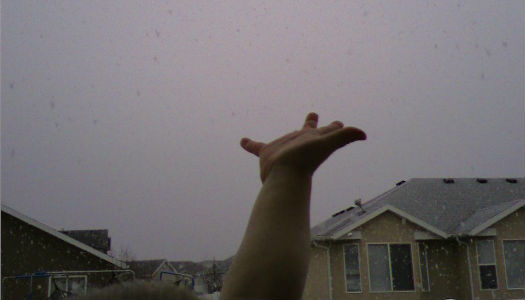It's almost the end of January, and chances are the New Year's resolution you had made for yourself is long forgotten. You're not alone. I've done stuff like that every year. So why aren't we getting better?
Goals are like cotton candy. There's an implied substance. They're easy. They're exciting. The aspirational success of our better selves seems so close I can taste it (I imagine a cross between sweat and butterscotch). But, ultimately, I fail when it comes to implementation. "I want to travel the world" is a great goal. But the ginormous scope is more likely to overwhelm the venture before it gets started than sustain it. A day goes by without action and I may feel guilty and resolve to do better the next day. But then something happens and another day goes by. That stagnation goes from a pool of guilt to stinky, stagnating stress. Those lousy feelings lead to avoidance. Before I know it I'm ready to call off the entire thing and resolve to "try harder" next year.

It is not enough to have goals. What is needed, instead, are systems. Systems focus effort on obtainable daily wins that, cumulatively, move one closer to their goal. And by establishing a enjoyable daily cycle with demonstrable process we are also establish the virtuous feedback loops of positive habits.
I'd like to claim I came to that realization on my own. However, props go to my wife, who forwarded me an excellent piece from Entrepreneur.com (Update 2022-01-03: the original Entrepreneur piece seems to no longer be there; however, there is this one with similar sentiment.). The TL;DR version:
- Commit to a process, not a goal.
- Release the need for immediate results.
- Build feedback loops that celebrate the journey.
(Update 2022-01-03: for more on creating systems to support goals, also check out this piece on the ArtWorkArchive site.)
Once again, I started 2014 with several goals. But, with the above details in mind, I'm approaching them differently.
I get so much from writing on a regular basis. I feel sharper when I regularly strain to mine words from the depths and forge them into coherence. Unlike years previous, however, my goal is not "to write a book" or "NaNoWriMo". That would be committing to a huge goal that is more likely to leave me feeling like a failure on a daily basis. Instead, my system is setup to encourage me to write at least five hundred words a day.

What do I mean by "system"? The first is selecting a daily amount that I can accomplish. Five hundred words I can manage among family, work, and play. I've released the need for immediate results; those words are private and can be about anything. If they turn into a blog post later, so be it. I'm free to see what happens. Instead of feeling stressed about trying to fulfill a quota I'm excited about writing and seek out opportunities now "to see what's there". And these daily steps are incrementally moving me closer to a "big" goal. A typical book is 50,000-60,000 works. Assuming I meet my system requirements five days a week I'll have written 130,000 words in 2014 — or about the equivalent of two and a half novels. To close the feedback loop I'm using DraftIn, an online collaboration tool for writers. It allows me to set a daily quota, sends reminders when I haven't written anything, and congratulates me on positive streaks.
Other goal I have is going deeper into Android development. A goal I've had in the past that I now recognize as a trap is "deploy something of my own in the Android Play store". That doesn't do a good job of setting up a system of daily progress to the goal. There's a tremendous amount of expectation there for immediate results. And what is the feedback, without those incremental wins, on whether I'm any closer to putting an app in the store today than I was yesterday?
This year I'm approaching things differently. My means for daily improvement in the right direction is working through a pair of books. The first is Learn Java for Android Development by Jeff Friesen. The second is Learning Android: Building Applications for the Android Market by Marko Gargenta. I created a public repository on Github to measure progress. It produces an RSS feed of updates and a JSON feed if I want to build my own simple feedback congratulations and reminders. Even if I don't have an app in the store by 2014 I'll be much more familiar with Git, Java development, and Android.
Finally, I'd really like to "get into" (literally) wearables. I have a number of ideas that are probably better suited for a separate post. But what I'm trying to define, at the moment, is what the virtuous system is for that goal. How do I turn that into a process? How do I move toward something bigger without requiring immediate results? And how do I build feedback loops for a physical item(s)? That is going to take some additional processing.
What are you doing for resolutions this year? What have you found that works? Leave me a comment in the contact form below. I'd love to have a few people to bounce ideas off of. How we can keep the good intention of the New Year going the entire year long?




